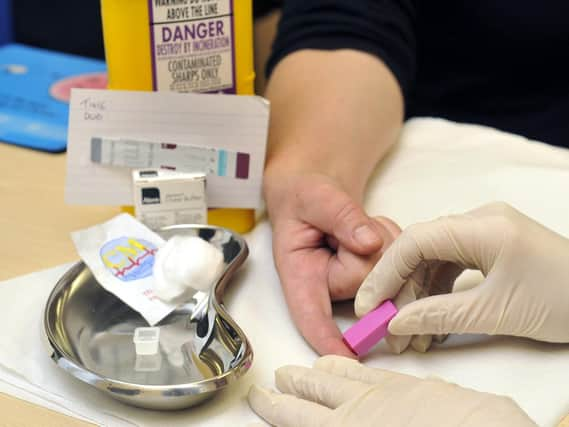HIV cases rise in WIgan


Latest Public Health England data shows there were 7.9 new infection diagnoses per 100,000 people aged 15 and over in Wigan in 2017: up from 6.8 the year before.
This goes against the trend across England, where the new diagnosis rate has steadily reduced, from 12.9 in 2012 to 8.7 last year.
Advertisement
Hide AdAdvertisement
Hide AdThe National Aids Trust said the overall figures showed the HIV epidemic is slowing but warned “cuts to HIV prevention expenditure must be reversed if we are to avoid progress stalling”.
Over that time period HIV testing in Wigan has decreased, although local health chiefs sought to downplay the rise today saying that small numbers of patients were involved.
In 2017, 26 per cent of eligible patients attending a sexual health clinic had an HIV test, compared with 42 per cent in 2016. Men were much more likely to accept a test than women.
HIV, or human immunodeficiency virus, damages the immune system and weakens the ability to fight everyday infections.
Advertisement
Hide AdAdvertisement
Hide AdThis can lead to a person getting Aids, acquired immune deficiency syndrome, which is the name for a collection of potentially life-threatening illnesses which occur after the immune system has been damaged by HIV.
Wigan’s HIV prevalence is below the North West average of 185 per 100,000 people. But HIV prevalence is increasing.
In 2011, when this data was first recorded, there were 89 people per 100,000 who were HIV positive. That figure rose to 122 last year, although that could be partly or entirely attributable to treatments’ improving so patients live longer.
Prof Kate Ardern, director of public health at Wigan Council, said: “With such a small number of cases diagnosed here in Wigan borough it is unfair to draw conclusions that there are any issues with rising numbers as a single diagnosis could have caused this rise.
Advertisement
Hide AdAdvertisement
Hide Ad“Through The Deal for Health and Wellness we are addressing access to our services for residents and as part of that have redesigned our sexual health services with our new provider Spectrum CIC to give people more ways to engage with us.
“Prevention and access to professionals who can help with all the things you need, including HIV testing, is key to our new model for sexual health in the borough. We have therefore committed to bringing local partners together to develop and deliver a local action plan for improving the awareness of, availability of and access to HIV testing in Wigan.
“We contribute to the Passionate about Sexual Health (PaSH) partnership which works across Greater Manchester to provide HIV prevention and support services.
“These actions are already starting to have an early impact, with 92 per cent (1,735) of new patients between July and September 2018 being offered a HIV test in Spectrum clinics, 39 per cent of whom accepted, a significant increase from the previous quarter, where only 23 per cent of residents accepted. Whilst these figures are encouraging, we know we still have much to do to address our historical challenges around HIV testing in Wigan, and are looking forward to working with our partners to do so.”
Advertisement
Hide AdAdvertisement
Hide AdSusan Hansford, head of service at Spectrum’s Sexual Health Services in Wigan and Leigh, said: “We encourage anyone who has been exposed to risks associated with HIV to come into clinic for a HIV test.
“Spectrum offer quick, simple and free testing which can give people peace of mind if they’re worried or unsure. Early diagnosis can save lives and is crucial in supporting people with HIV to access effective treatment and live well for longer. Please visit www.sexual-health.co.uk for clinic opening times and for more information on HIV.”
In many people HIV has been reduced to an undetectable level, so they cannot pass it on.
Public Health Minister Steve Brine said the figures showed “we are well on our way to eradicating” HIV, but he warned against complacency.
Advertisement
Hide AdAdvertisement
Hide AdHe added: “Our commitment to prevention has led to more people getting tested and almost every person with a diagnosis is now in treatment – meaning they are unlikely to pass the virus on to someone else.
“I am committed to ensuring that we deliver on our promise to reduce the number of people contracting HIV even further.”